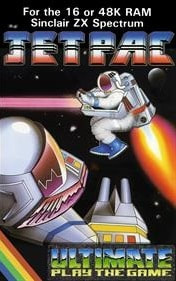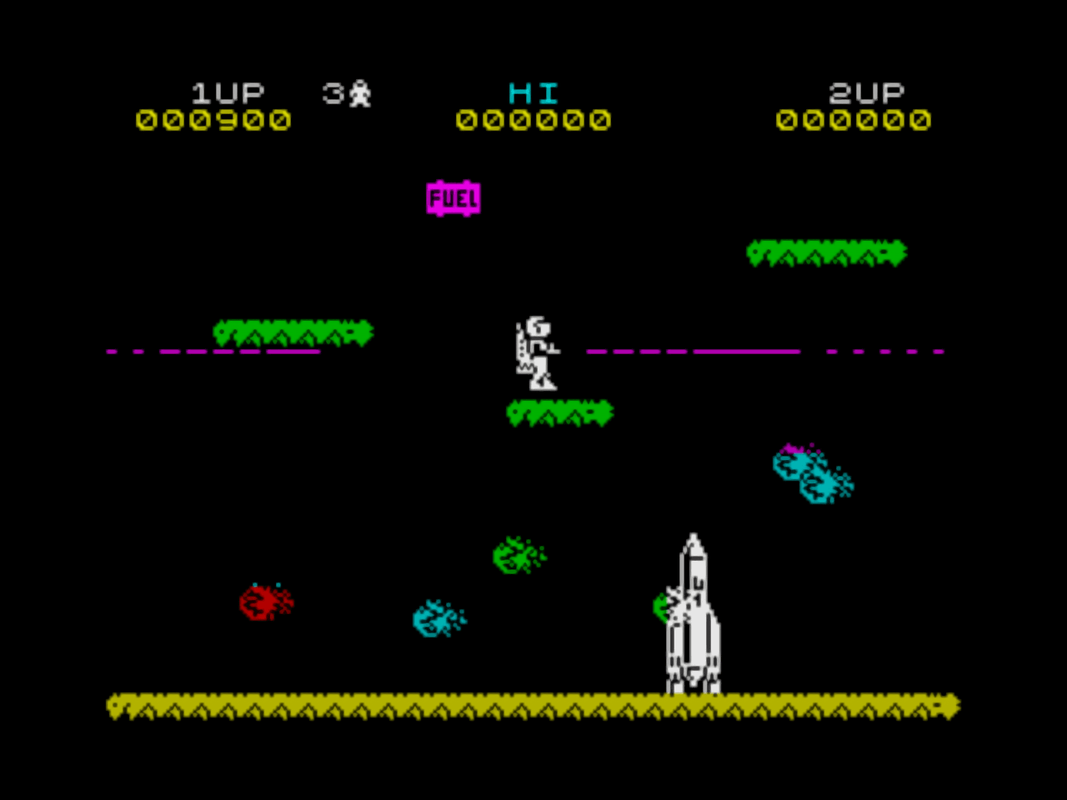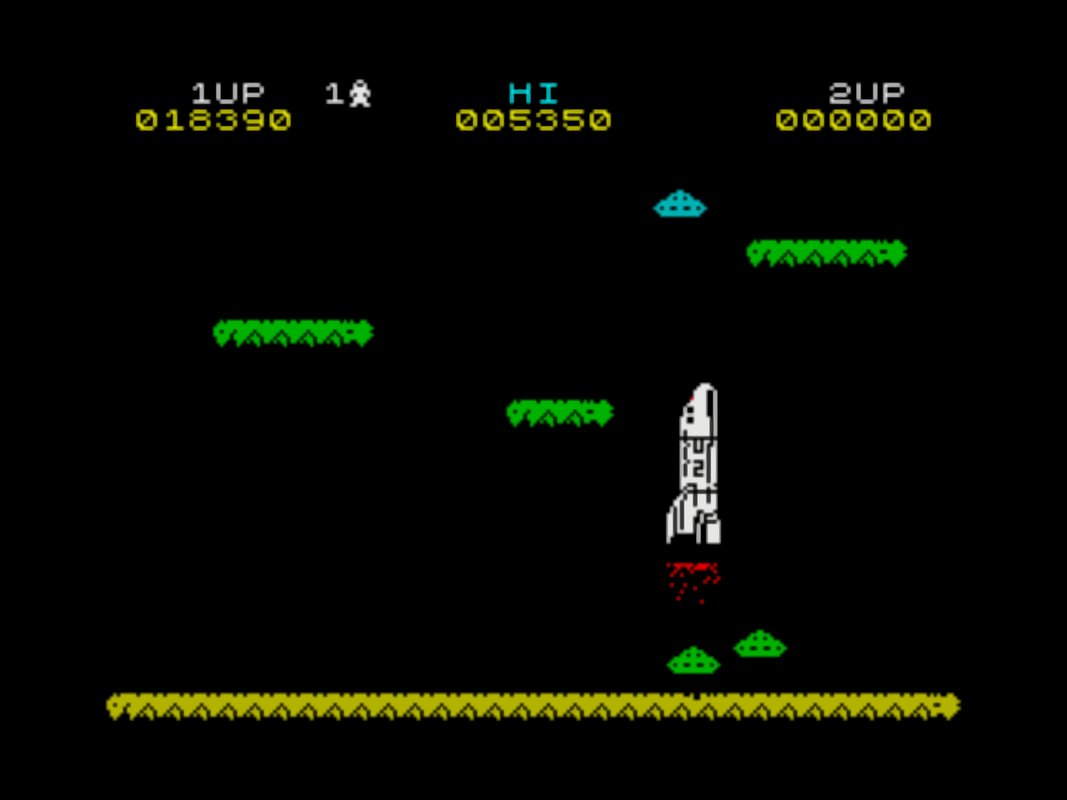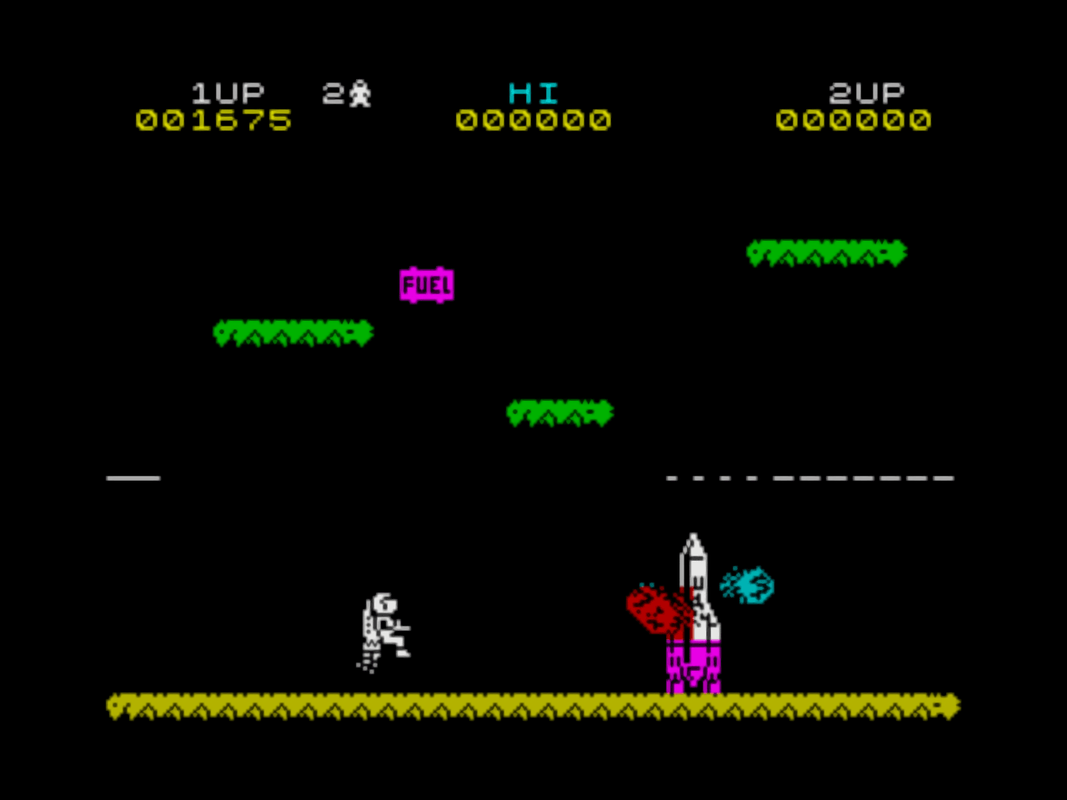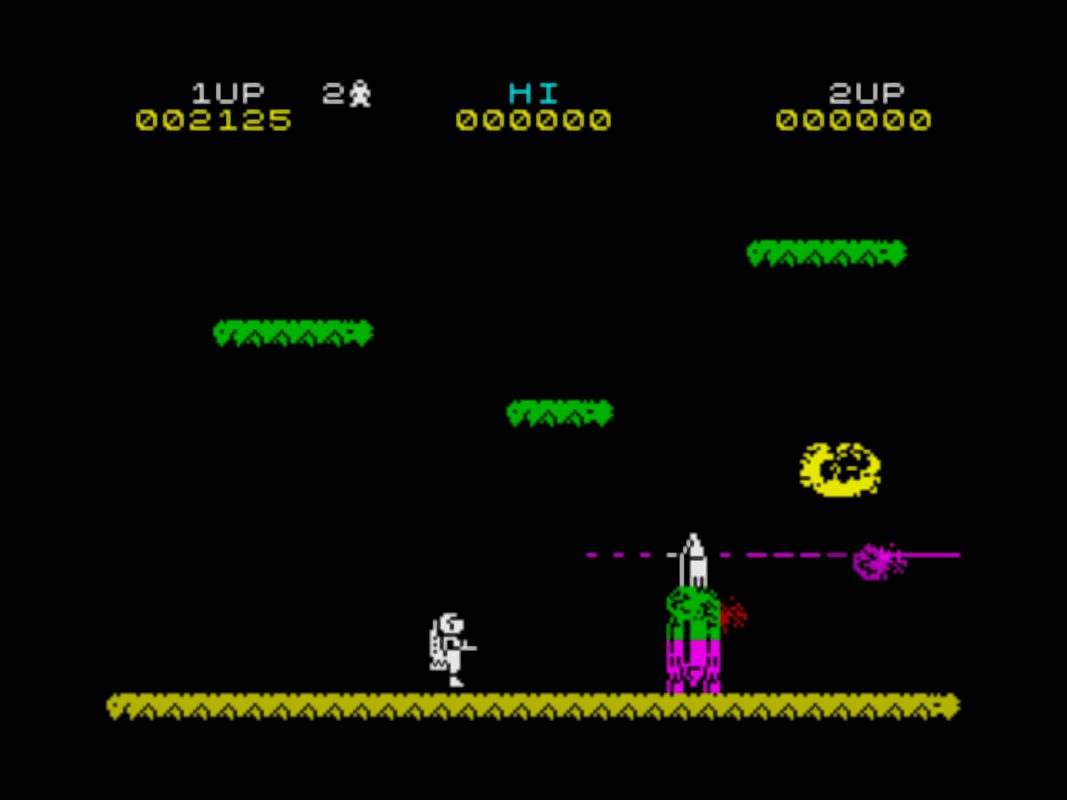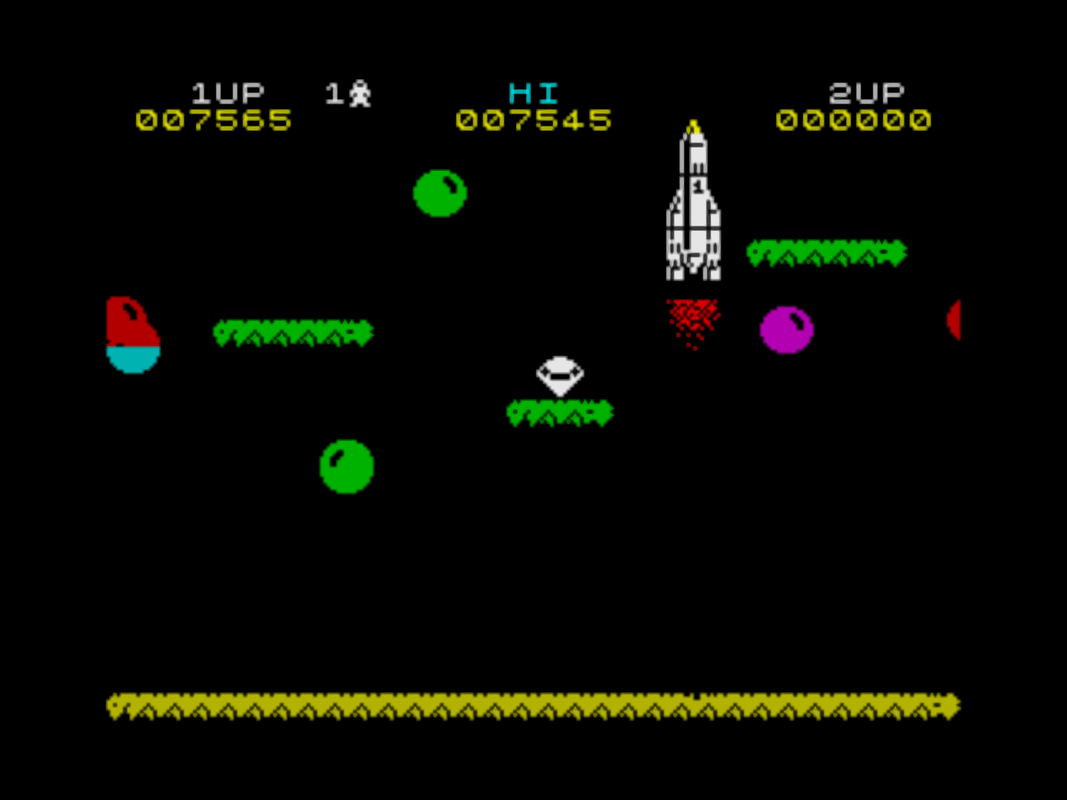JETPAC (SPC)
Read any gaming publication from the eighties and the yardstick by which most games were judged was how closely they could capture an arcade experience. Consequently, the biggest draws for the home market were coin-op ports, with systems fighting to provide the best home interpretations of Pac-Man, Space Invaders, Outrun and so on. The ZX Spectrum scene helped to evolve this state of affairs, as a legion of bedroom coders would build a library far greater in diversity than could be expected from the cabinets. Nevertheless, for many years arcades were cited as the primary point of comparison, with magazines often naming and styling their review sections to reflect this.
It was perhaps unsurprising then that 1983’s Jetpac was something of a media darling. As early 48k titles struggled for smoothness and often looked crude next to their coin-op counterparts, Ultimate Play the Game’s shooter delivered (for the time) flashy effects, silky-smooth gameplay and pure, white-knuckle immediacy. More than a decade after the final manned Apollo mission, the advent of such simple but exciting works allowed another generation of kids to start dreaming of the stars.
Jetpac is a stunning space shooter, which means Tom gets to wheel out lines like: "It's out of this world!" etc.
When I was growing up, I was lucky enough to receive a ZX Spectrum 128k. With it came around two-dozen games and Jetpac would prove both an instant standout and a long term favourite. It wasn’t until a long time afterwards that I discovered the game was many years older than most of the other tapes in my collection. Simple ideas often age gracefully and whilst a lot of its competitors would flounder through muddled controls or over-ambition, Jetpac’s elegant design would endure for the duration of its system’s run.
The object of the game is to assemble a rocket ship, fill it with fuel and board it to complete a stage. An absolute doddle, right? Well, it would be, but for a couple of key factors. Your task is rendered considerably trickier (and more interesting) by low-gravity environments. These require the mastery of novel jetpack controls, with the player having to judge thrust. Then there are the constant swarms of enemies sent to foil our spaceman’s plan, the style, speed and patterns of which change with each wave.
The object of the game is to assemble a rocket ship, fill it with fuel and board it to complete a stage. An absolute doddle, right? Well, it would be, but for a couple of key factors. Your task is rendered considerably trickier (and more interesting) by low-gravity environments. These require the mastery of novel jetpack controls, with the player having to judge thrust. Then there are the constant swarms of enemies sent to foil our spaceman’s plan, the style, speed and patterns of which change with each wave.
What gave Jetpac that much sought-after arcade-in-the-home quality? For my money, the sheer immediacy of it is hard to beat. The action may seem like simplicity itself, but superb controls and a balanced challenge mean it has the player hooked instantly and keeps reeling you back in. Setting high scores is a magnetic draw and beating waves is fantastic fun, as you wait in anticipation of the kinds of alien intelligence that will next be thrown your way. It never lets up, with a frenetic quality that even Space Invaders struggles to match.
It wasn’t just nippy controls and smart design that wowed the punters, of course. For an early example of 48k ZX Spectrum output, Jetpac’s visuals provide a feast of sci-fi action, with the protagonist able to fire some outrageously cool laser beams that pass through one side of the screen and out the other. Add to this the busy, technicolour enemy patterns and the cool little zips the player’s jet-packing makes and you’ve got a satisfyingly busy action game.
It wasn’t just nippy controls and smart design that wowed the punters, of course. For an early example of 48k ZX Spectrum output, Jetpac’s visuals provide a feast of sci-fi action, with the protagonist able to fire some outrageously cool laser beams that pass through one side of the screen and out the other. Add to this the busy, technicolour enemy patterns and the cool little zips the player’s jet-packing makes and you’ve got a satisfyingly busy action game.
It’s hard to fault Jetpac. If I was being picky, I’d say fuel dumps landing in the corners of the screen rather invites disaster as enemies often kill you by spawning at the sides of the screen, regardless of whether the player is already occupying the space. Switching up the layouts of the platforms would have added another layer of intrigue, but the game doesn’t suffer for this absence of variation.
Put simply, Jetpac is a classic: a sparkling early entry in the ZX Spectrum’s library and one of the most enjoyable shooters of the decade. A big step in the standards of home computer presentation, it was in a different league to other shoot ‘em ups of the time. Wracking up high-scores may not sound like a recipe for great replay value, but as sure as its gently persuasive gravity, Jetpac always compels you to return, in the end.
Put simply, Jetpac is a classic: a sparkling early entry in the ZX Spectrum’s library and one of the most enjoyable shooters of the decade. A big step in the standards of home computer presentation, it was in a different league to other shoot ‘em ups of the time. Wracking up high-scores may not sound like a recipe for great replay value, but as sure as its gently persuasive gravity, Jetpac always compels you to return, in the end.
|
|
VERDICT
"Jetpac’s elegant design would endure for the duration of its system’s run... a sparkling early entry in the ZX Spectrum’s library and one of the most enjoyable shooters of the decade." OVERALL: 9/10 |
